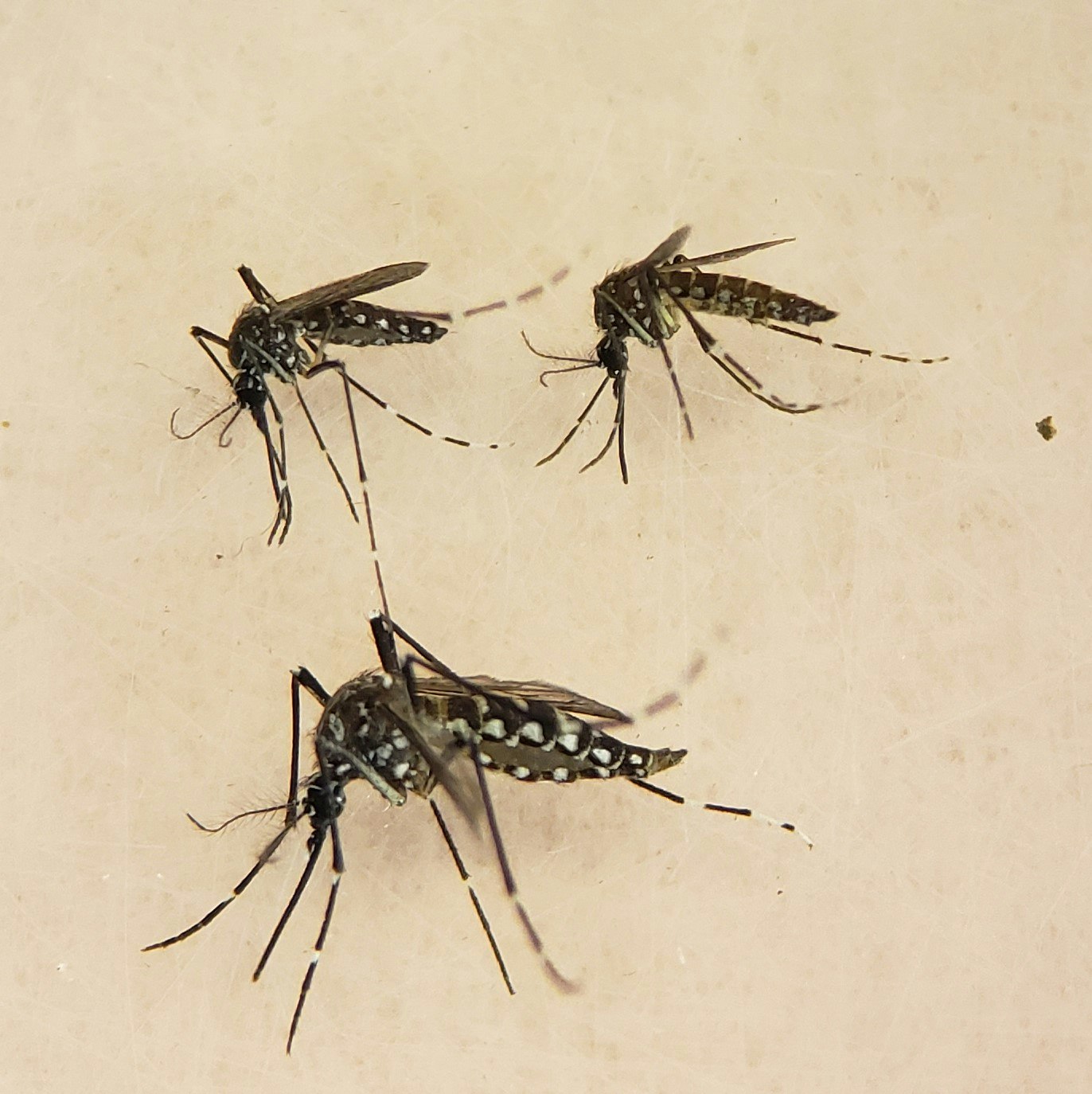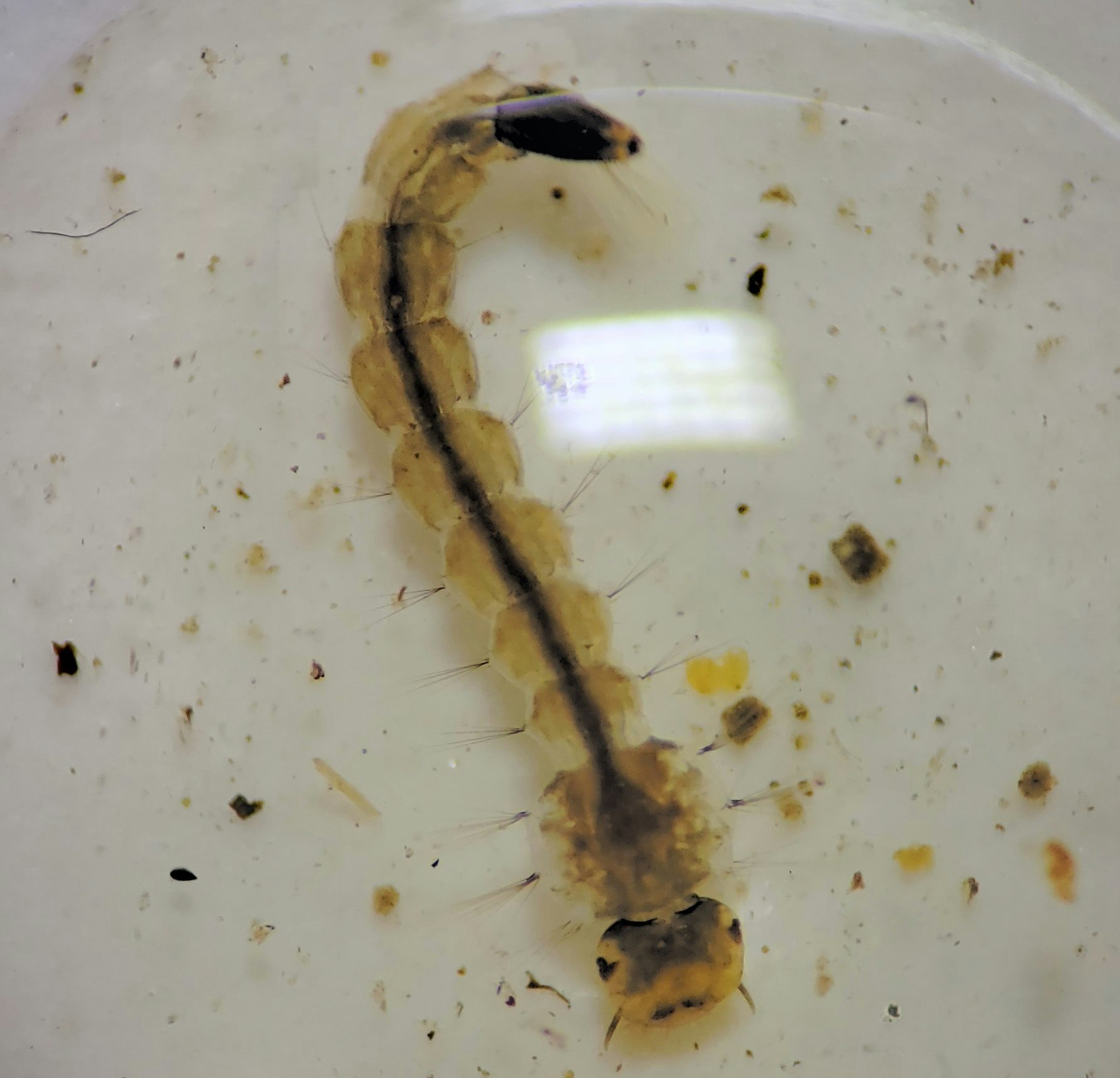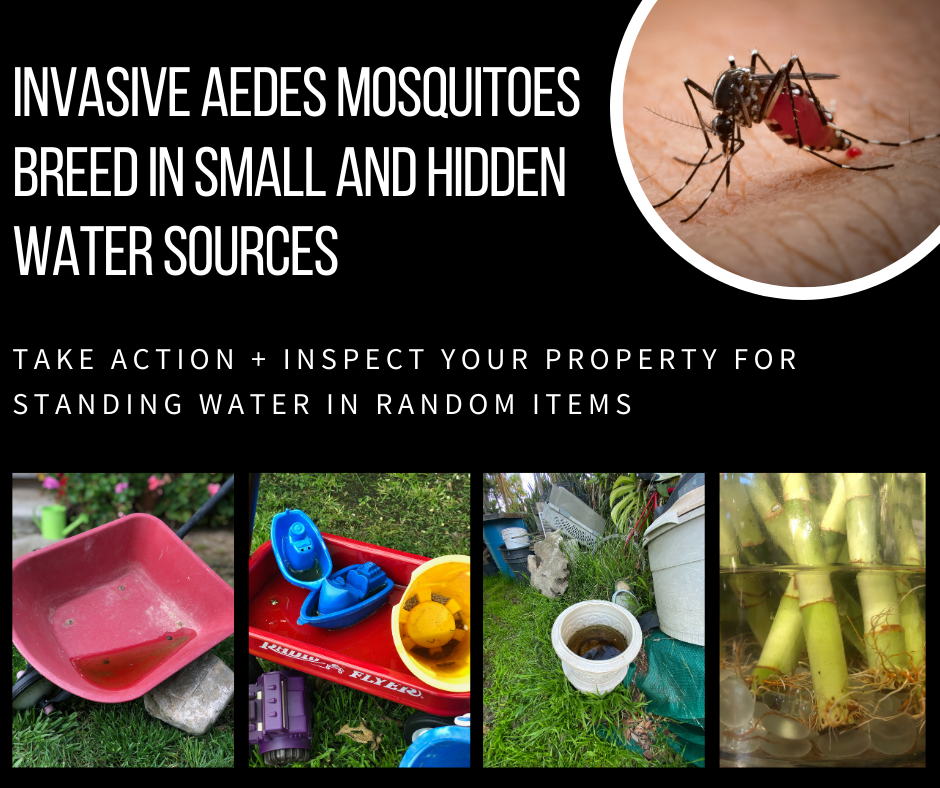Invasive Aedes Mosquitoes
Yellow Fever Mosquito (Aedes aegypti)

The Yellow Fever mosquito is a non-native mosquito that has made its way into several counties in California, including Kern and Tulare County.
This invasive mosquito is an aggressive day time biter that will readily enter and follow people into buildings and vehicles. She prefers to bite humans, usually around the ankles and elbows, but will readily bite animals too.
This mosquito is a known “container breeder.” Females will lay individual eggs in buckets, flower pot saucers, cups, old tires, and various containers that collect water. Eggs can be laid in containers holding as little as a teaspoon of water. And those eggs, laid just above the water line, can survive dry conditions for months. Aside from containers, they will also utilize natural habitats such as inside tree holes, bamboo, and flowering plants to breed. Backyards are the number one source for mosquito production. Anything that can hold water for more than a week has the ability to produce mosquitoes. For this reason, it is important to dump, drain, or eliminate unnecessary sources of standing water around your home and scrub containers to dislodge eggs.

This invasive mosquito is capable of transmitting dengue, yellow fever, chikungunya, and Zika virus. Rest easy though. There has been no detection of locally acquired dengue, yellow fever, chikungunya or Zika virus in Kern and Tulare County. However, to protect yourself and prevent the spread and establishment of this invasive mosquito, the Delano Mosquito Abatement District suggest you following:
- Mosquitoes are most active during dusk and dawn. Stay inside if possible, if you have to be outdoors, dress in long-sleeve shirts and pants, socks and shoes.
- Use and follow labels on insect repellent Select repellents that contain DEET, picaridin, oil of lemon eucalyptus or IR3535.
- Dump, drain or eliminate any sources of standing water in your yard, under potted plants, in bird baths, ornamental fountains, buckets, broken sprinkler heads and discarded tires. Check your rain gutters to make sure they are not holding water, and clean pet water-dishes weekly.
- Be sure your home’s window and door screens are in good repair to prevent mosquitoes from coming inside.

For those traveling to and from regions; such as Central and South America, Mexico, Southeast Asia and Africa, where these viruses are more prevalent, remember to protect yourself from mosquitoes by following the sugeestions above. If you are sick with fever, headache and joint or muscle pain after returning from areas where dengue, yellow fever, chikungunya or Zika viruses occur, contact your doctor and stay indoors as much as possible to avoid mosquito bites and help prevent possible spread of those viruses.
The district is routinely monitoring for this non-native species of mosquitoes.
If you believe you have a mosquito problem, please contact the Delano Mosquito Abatement District online or at 661-725-3114.
For more information on these invasive mosquitoes and their associated viruses, please visit:
CDPH – Aedes aegypti and Aedes albopictus
CDC – Aedes aegypti and Aedes albopictus
English Aedes aegypti fact sheetSpanish Aedes aegpyti fact sheet

